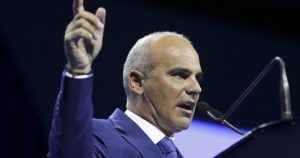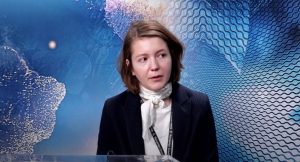
A year has elapsed since Joerg Haider’s extremist party (Liberty Party) and Wolfgang Schüssel’s conservative’s supporters ( People’s Party) associated in order to make up the Austrian government. Due to this event, the chancellor Wolfgang Schüssel made several optimistic declarations. "The success of this first year of governmental activity indicates that the international fears provoked by our association with the Liberty Party are not justified", the Austrian chancellor has declared repeatedly. He hopes that the alliance with the People’s Party will be preserved during a second mandate, when the position of chancellor should be held by a member of the Liberty Party.
The triumphant attitude of the contested Austrian government is mean to hit several targets at a time.
The most important of them is the European Union. The European institutions violently contested the conservatives’ association with Joerg Haider’s rightist party and penalized Austria during several months.
It was for the first time when EU violently interfered
with the internal policy of one of its memebrs.
But in September 2000, the sanctions were annulled because of an international report according to which democracy was not threatened in Austria and the government’s polices were not directed aginst foreigners. In fact, this report was a honorable way for the EU representatives to give up their punitive measures.
The sanctions of the European community didn’t provoke the diminution of the support given to Haider’s neo-populist party; on the contrary, they
irritated the Austrians, who had the feeling that that punishment was directed against the entire population. These sanctions were considered a national affront (let’s not forget that Austria is a country whose identity-related problems are pretty ticklish) because they seemed to be hypocritical. The Austrian government had the ability of showing that the immigrants’ problem concerned the entire EU and that most of the European capitals were interested in policies meant to reduce this phenomenon. It also had the ability of underlining the the Austrian standards as far as the minorities protection is concerned are higher than in other European countries. EU’s decision of giving up the ostracizing measures was also influenced by the fact that the Austrain government had threatened to organize a referendum meant to call into question Austria’s statute as a EU member. Briefly, EU failed when it tried to punish Austria, and Schüssel and Haider wanted to underline this fact.
Secondly, the Austrian chancellor wanted to show everybody that the so-called "Schüssel solution" , i.e. the domestication of a party having a radical orientation by including it into the governemnt coalition, was a successful operation. Schüssel’s theory claims that neo-populism can be assimilated and neutralized by democratic structures. The assimilation is facilitated by several characteristics of this orientation: neo-populism differs from traditional populism by the fact that it accepts to wear the honorable clothes of democracy and the market-oriented economy. Unlike the traditional populism, which was authoritative, corporation-like and exalted the values of the state, raising the society above the individual, the new type of populism is neo-liberal, anti-levelling and does not oppose the democratic system, but only the political establishment and criticizes the state’s centralization and excessive bureaucracy, which affects the regional development. From the traditional recipe, neo-populism preserves only the racist tone and demagogy. Schüssel wants to show that these negative aspects are attenuated when the governing responsibility is shared. As for the rest, the balance sheet drawn up by the Austrian chancellor indicates many things which are appreciated by EU: more jobs for the unemployed, the reform of the budget and the pension system, the austerity which affetcs this prosperous state, the exports boom, etc. I.e. nothing very exotic.
(Adrian CIOFLANCA)






















